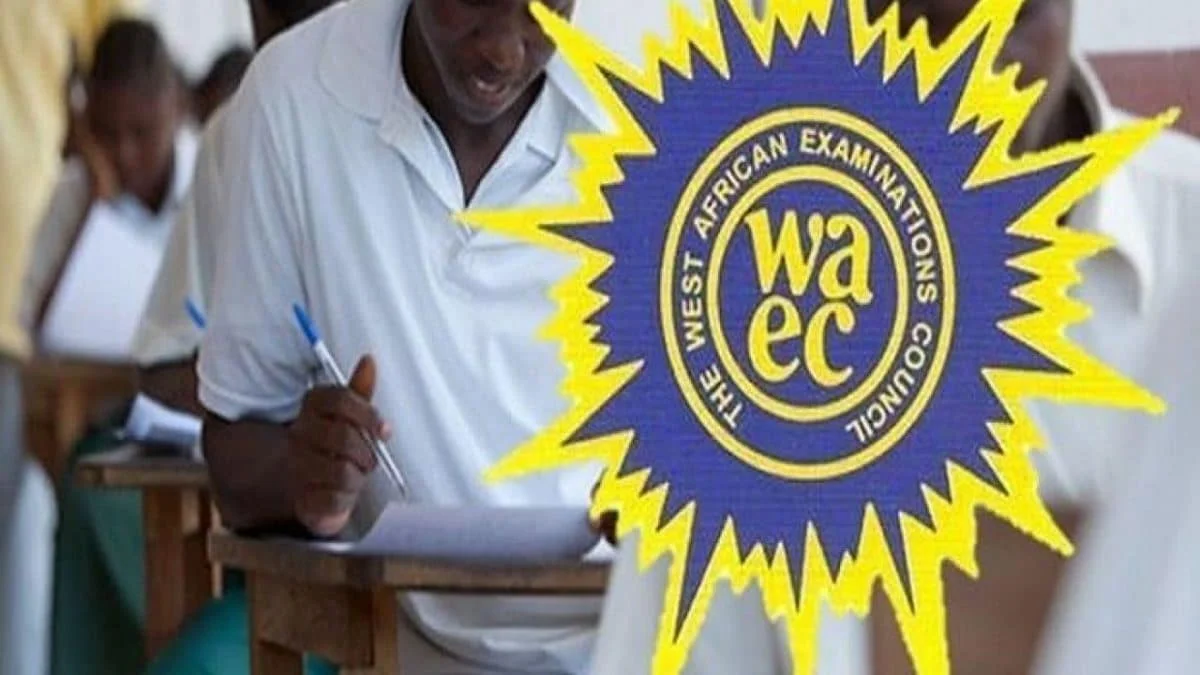
Stakeholders in the education sector are still reacting to the recent results of the 2025 West African Senior School Certificate Examination, WASSCE, released by the West African Examinations Council, WAEC.
DAILY POST reports that WAEC had on August 4, released the 2025 WASSCE results for school candidates.
“The West African Examinations Council is pleased to inform candidates who sat WASSCE for School Candidates, 2025 that the result has officially been released today, Monday, August 4, 2025,” WAEC stated.
DAILY POST reports that out of the 1,969,313 candidates who sat for the examination, only 754,545 candidates, representing 38.32%, obtained credits and above in a minimum of five subjects, including English Language and Mathematics.
Meanwhile, recalling the 2024 WASSCE, 72.12% of candidates obtained credits and above in a minimum of five subjects, including English Language and Mathematics, which was a 33.8% decrease in performance.
The mass failure had attracted strong criticism, with parents and some groups calling for the cancellation of some of the papers, especially English Language and Mathematics.
Stakeholders are also demanding independent investigations into the matter and overhaul of the council’s management team.
According to them, subjecting WASSCE, a standardised evaluation for secondary school leavers and basic requirement for tertiary institution admissions, to “trial and error” is unacceptable.
Following the public outcry, the examination said it reviewed the Mathematics, English Language, Biology and Economics results released on its site.
The council, while apologizing, said it urgently corrected the technical glitches that led to the situation.
Subsequently, WAEC said it discovered technical glitches during an internal review and temporarily withdrew access to the results.
Reacting to the mass failure, the Nigeria Union of Teachers, NUT, said the development boils down to system failure.
“Let us first take a look at the condition under which some of the candidates sat for some of the papers, especially the English Language paper. The Council said it discovered that the paper leaked, and instead of cancelling it, went ahead to let students write it at odd hours.
“The students, who had conditioned their minds to write the paper in the morning, were delayed till evening and even night in some cases,” it said.
On its part, the National Association of Nigerian Students, NANS, stated that the condition under which the candidates wrote some papers, especially English, was terrible.
“What do you expect? The conduct of the exam in some instances left much to be desired. Look at the day they wrote the English Language paper. It was horrific. Candidates were drained emotionally and were tired.
“But a lot of other factors also contributed. The technical hitches in the exam were what some candidates also experienced during the UTME,” the students’ body noted.
A school teacher, Divine Mike, questioned the council’s credibility and the integrity of Nigeria’s education assessment system, describing the development as a national disaster and accused WAEC of bastardising the entire education process.
“You cannot make such a serious examination a subject of trial and error.
“Today the pass rate is 38 per cent, tomorrow it becomes 63 per cent. How are we supposed to trust the authenticity of these results?” He queried.
He, therefore, urged the federal government to urgently probe the matter, insisting that those at the helm of affairs in WAEC should be reshuffled.
Another private school teacher, Israel Chukwudi, stressed that the incident highlights the importance of ensuring exam bodies have robust systems.
He expressed worries that the development could jeopardise the council’s proposed full Computer-Based Testing, CBT, examination in 2026.
According to him, the incident raises questions about WAEC’s transition to CBT, by 2026, considering Nigeria’s digital infrastructure gaps in rural areas.
“If WAEC, as an examination body, could not put its logistics together to ensure smooth running, how would it transit to the Computer-Based Testing it is proposing,” he asked.
Some of the affected students, who also took the National Examination Council, NECO, spoke to DAILY POST.
They said they had shifted their hopes of getting favorable results to the NECO exams.
“This has never happened before. Why would an examination body as mighty as WAEC be toiling with innocent children’s future this way?
“My only hope now is in NECO. I pray I clear the paper to enable me continue my education,” a student, Ogwuche Aminu, said.
Another student, Blessing Uguru, said: “it is a pity that a lot of students failed the examination. They are to be blamed for the mass failure.
“Students no longer make time to read any more due to laziness; as for me, I leant the hard way. I’m patiently and expectantly waiting for NECO to know my fate.”
Speaking to DAILY POST, the Minister of Education, Dr Maruf Olatunji Alausa, who spoke through the Director, Press and Public Relations of the ministry, Boriowo Folasade, reaffirmed the Federal Government’s commitment to transparency, accountability, educational excellence, and zero tolerance for examination malpractice.
Alausa highlighted the consistent decline in malpractice rates over the past three years— from 16.29% in 2023 to 11.92% in 2024, and 9.70% in 2025, attributing the progress to robust anti-malpractice measures introduced by WAEC, including the serialization of question papers in key subjects such as English Language, Mathematics, Biology, and Economics.
The Minister also stressed the government’s resolve to build human capacity through continuous teacher training and support.
“We are committed to producing smart, competent teachers to better prepare our students for academic success. This is crucial to ensuring that our examinations remain credible and flawless.
“Let us work together to ensure that every hardworking child has the opportunity to succeed,” he urged.
‘WAEC bastardising Nigerian education process’ – Stakeholders rue 2025 WASSCE outcome

